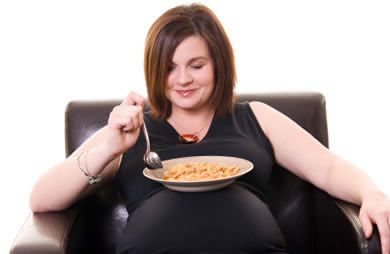|
As the mother of two small children, I work hard to provide them with healthy, home-cooked meals. I like to make batches of food I know they enjoy and freeze it for those nights when I'm short on time or just don't feel like cooking dinner. Last night was one of those nights. I'll unfreeze a portion of food for them, but then my husband and I are usually on our own to find something to eat. My choice (because I was tired and didn't want to cook) was an apple with peanut butter. Not terrible, but a little short on calories and probably not the best choice for a well-rounded dinner. Before having kids, I would have been much more likely to spend a few minutes making a dinner that included each of the food groups (I think mine was missing some dairy and whole grains). But there are nights when I consider it an accomplishment to feed my kids well, and just to get through the day without being hungry myself. Fortunately those days don't happen often, but I can see how parents would be less likely to eat healthy than people with no children. A recent British study found that households without children were healthier eaters. The study, published in the European Review of Agricultural Economics, compared dietary habits of households with and without children over a 2-week period. Researchers found that (even after controlling for factors such as age and income level) "a childless household consumed about 4.4 pounds more fruit and vegetables per person. Having children in the house also reduced the demand for meat, and increased the consumption of dairy products, cereal and potatoes." So why such a difference? I don't think most households are like mine, where I make sure my kids are still eating healthy even if I'm not. Parents are busy, kids are picky, and so it's easier just to go with what you know they are willing to eat. If I let them, my kids would eat noodles and rolls for every meal. They wouldn't voluntarily ask for an extra helping of meat or vegetables. Households without children are also more likely to have time to plan meals, grocery shop and prepare the food. I know everyone (whether you have kids or not) is busy. But I have to choose meals that don't require a lot of prep time because my kids aren't going to occupy themselves for 45 minutes while I experiment with a new recipe. I need meals that are quick and easy. If I had quiet time after work or on the weekends to do everything it takes to make lots of healthy, homemade meals, it would be much easier. But I just don't have that luxury these days. What do you think? Why do you think this study found a difference between the dietary habits of households with and without kids? |
More From SparkPeople
|




.png)










